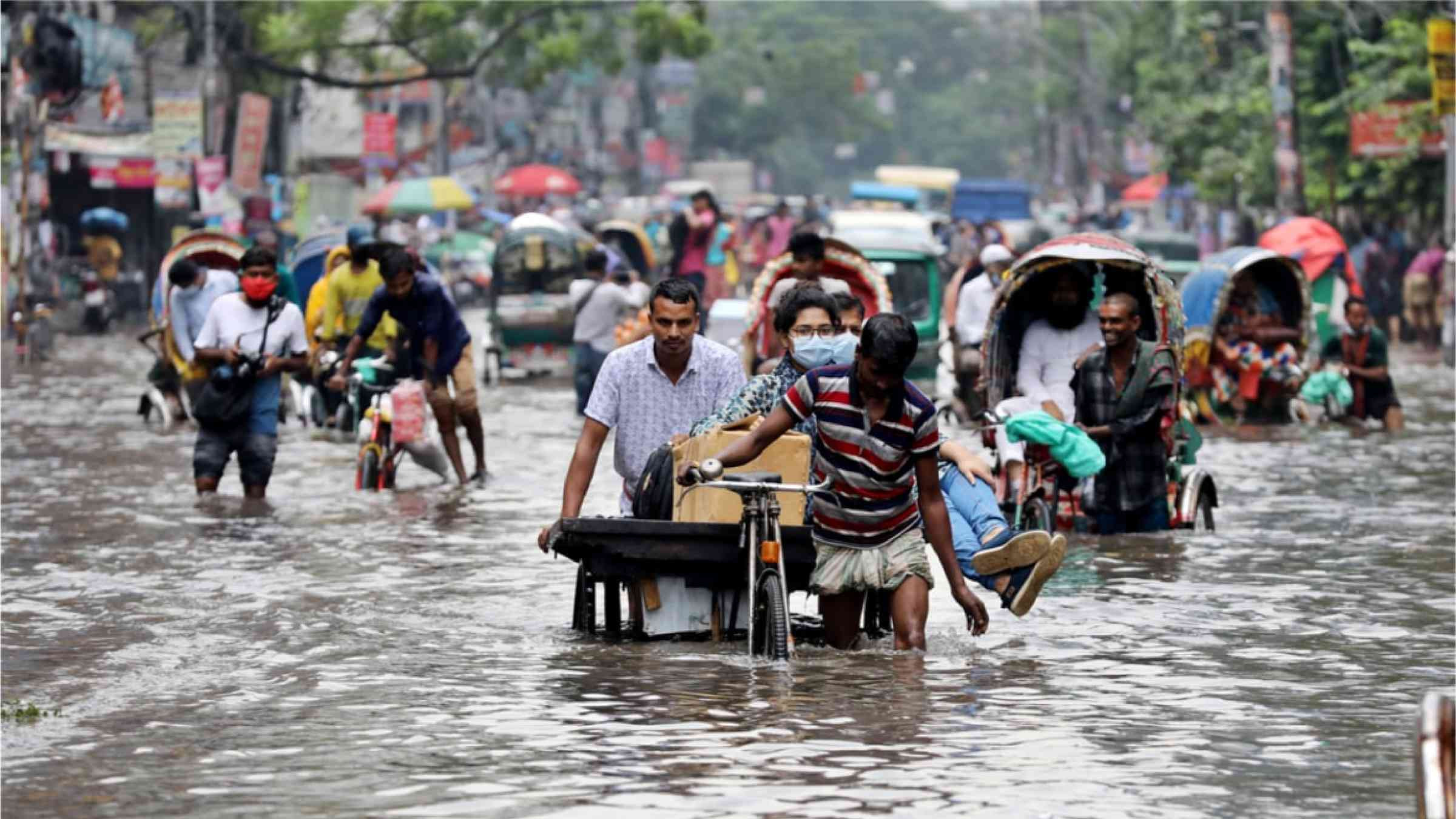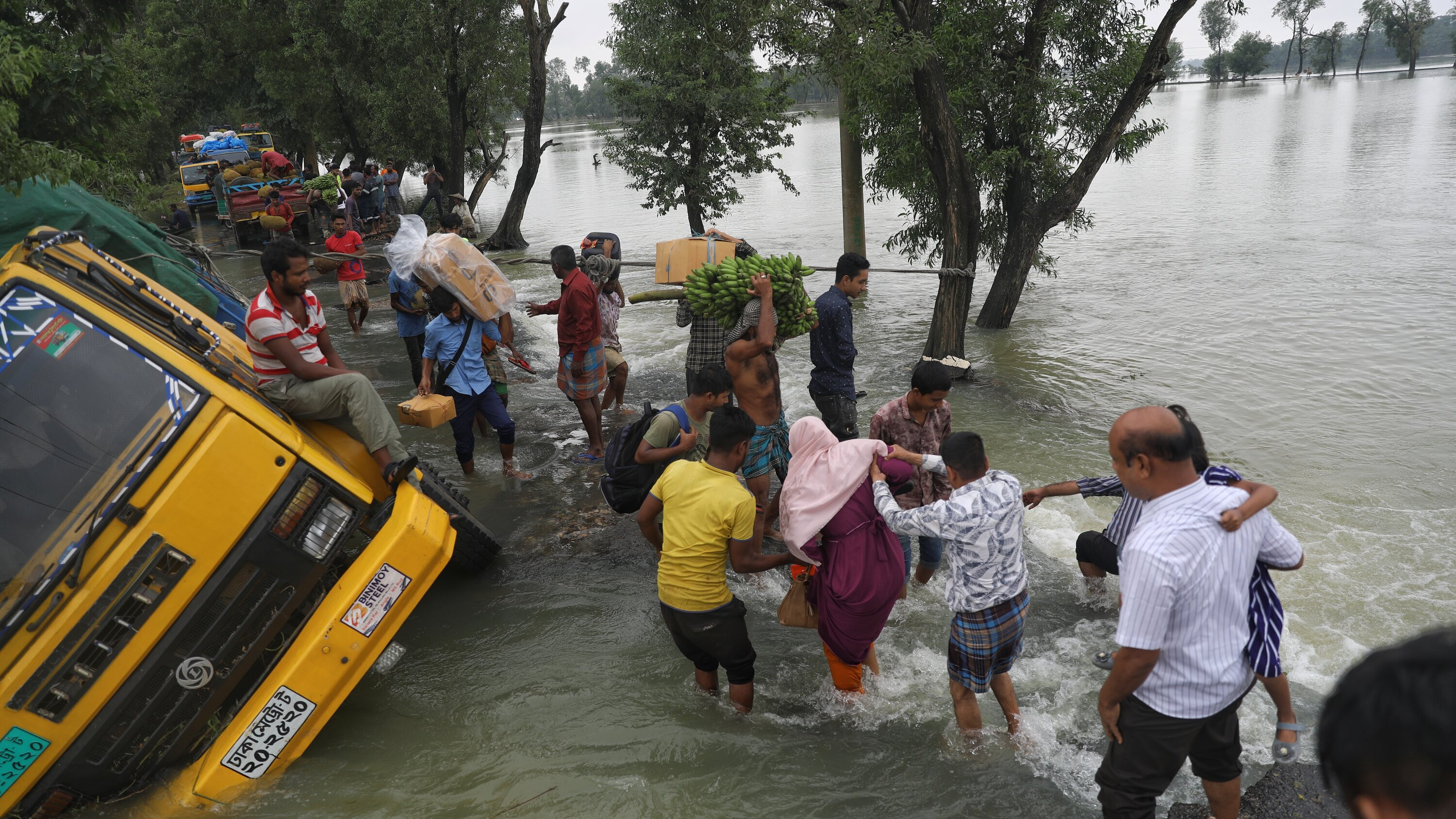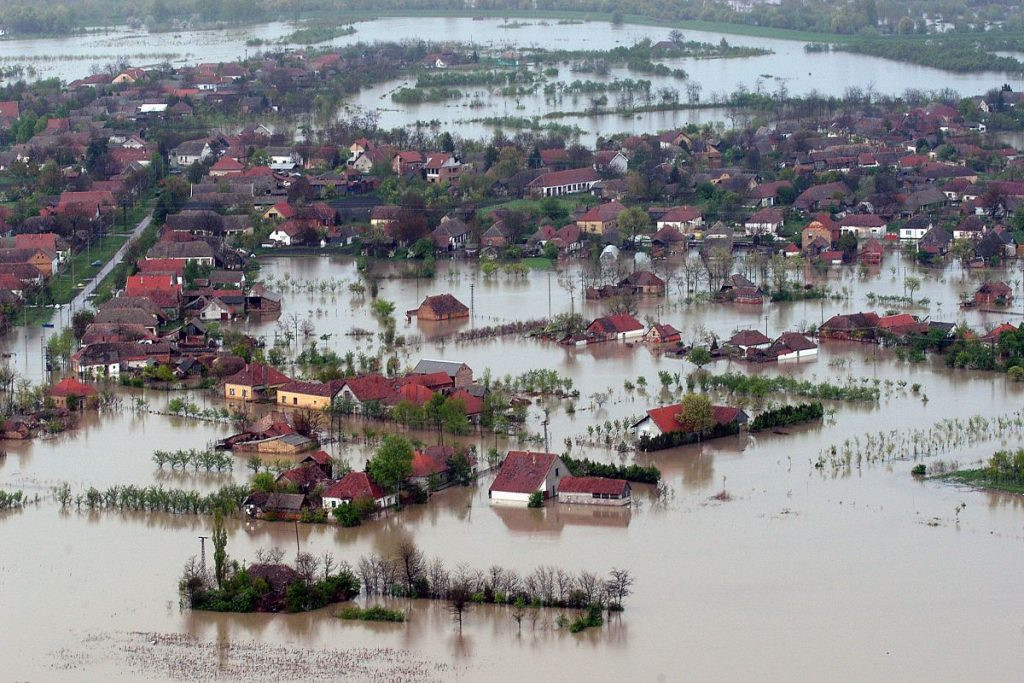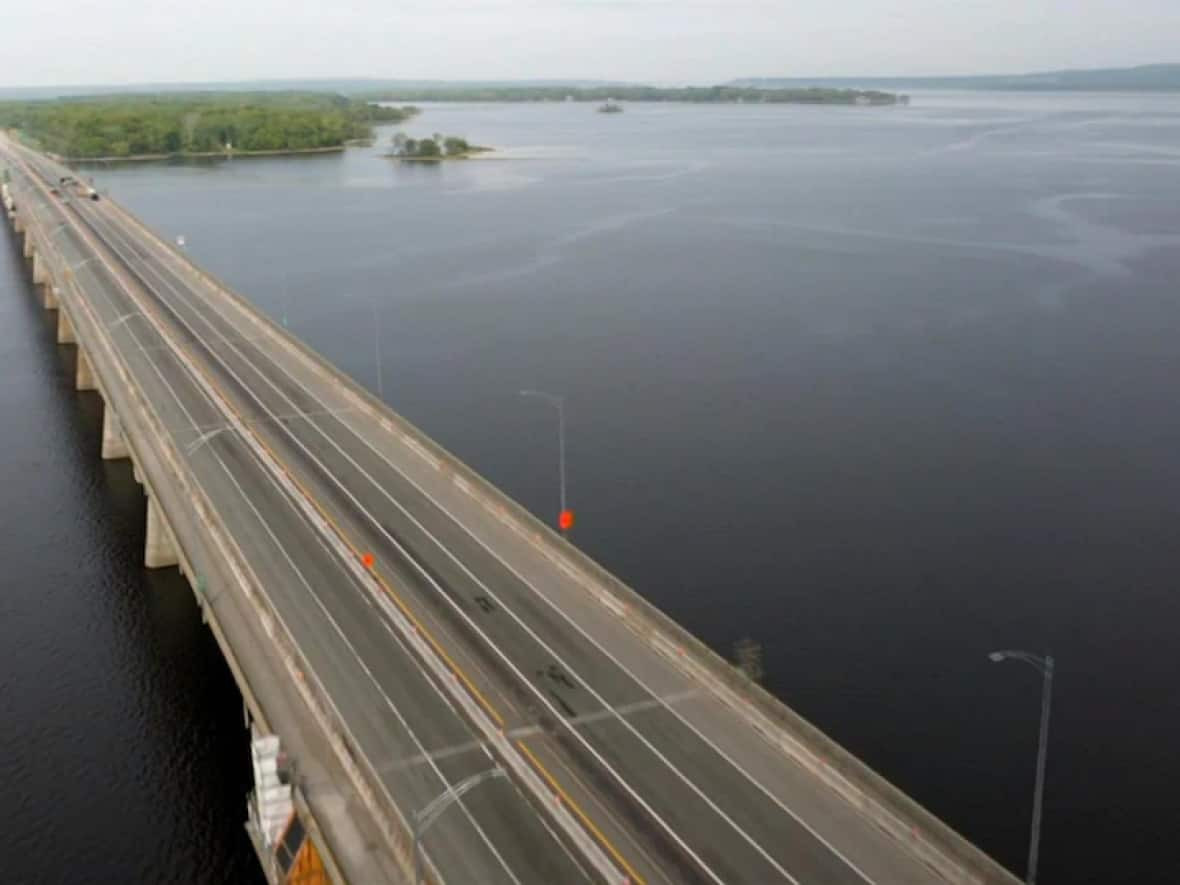Bangladesh Floods: A Nation's Resilience in the Face of Adversity
Over 5.8 million people have been impacted in 11 districts across Chattogram and Sylhet division by the flash flood caused due to insistent rainfall along with upstream water flow since mid- August. The severely affected districts include Feni, Cumilla, Lakshmipur, Noakhali, Chattogram and Moulvibazar. Nearly 583,000 families were marooned in the floodwaters. A total of 4,003 shelters had been opened, where approximately 550,000 people took shelter along with almost 40,000 cattle.
While the overall flood situation is improving, the water levels are slowly receding in 21 sub- districts across the region. A total of 14 sub-districts across Noakhali, Lakshmipur, Chandpur, and Feni are still facing significant challenges with floodwater.
The floods have wrought devastating impacts, resulting in extensive damage across housing, infrastructure, water supply and sanitation, agriculture, fisheries, livestock, and education sectors. The loss in livestock and fisheries sectors include USD 34 million, and USD 121.6 million and respectively. As floodwaters recede, there is a high risk of an epidemic due to lack of safe drinking water.
A Surge of Citizen Action: Bangladesh's Climate Volunteers
The recent floods in Bangladesh, coming on the heels of a democratic renewal, have presented a stark reminder of the country's vulnerability to climate change. However, amidst the devastation, a remarkable story of resilience has unfolded: a surge of citizen action that has become a model for climate volunteerism.
In August, Bangladesh experienced its worst flooding in over three decades, leaving millions displaced and struggling to rebuild their lives. However, The nation responded with an outpouring of support, showcasing a spirit of unity and compassion. From students leading the uprising to famed actors providing aid, The nation mobilized in unprecedented numbers to assist those affected by the floods.
This spontaneous generosity, ranging from girls breaking open their piggy banks to concerts raising funds, captured the attention of the world and demonstrated the power of community action. "The flooding has given us an opportunity to rediscover a missing characteristic of the nation - the united strength," wrote journalist Shiabur Rahman in The Financial Express. "The empathy the nation has shown for the flood victims is unprecedented. Volunteers - both trained and untrained - coming from different strata of society rushed to the affected areas to join the relief activities risking their lives, alongside the government efforts."
Lessons for the World: Cherishing Climate Volunteers
Bangladesh's experience highlights the crucial role of citizen participation in disaster response. The nation, already recognized for its innovative use of microloans and other reforms to reduce poverty, now stands as an example of community-driven climate adaptation.
The mass action by "climate volunteers" in Bangladesh has not gone unnoticed by other countries grappling with climate-related disasters. "Very few pay attention to the skills of volunteers and citizens who often lead response as disasters unfold," Janne Parviainen, a researcher at the Stockholm Environment Institute, wrote for Euractiv media network last year. He argues that a bottom-up approach to climate adaptation "should be cherished."
Bangladesh has shown the world that in the face of adversity, communities can come together and create meaningful change. Their "climate volunteers" stand as a testament to the power of collective action, providing inspiration and lessons for countries worldwide seeking to build resilience in the face of climate change.
A Call to Action: Building Resilience Together
The recent floods in Bangladesh have served as a stark reminder of the global threat posed by climate change. As the world grapples with rising temperatures, extreme weather events and rising sea levels, it is crucial to learn from the experiences of countries like Bangladesh and embrace community-driven approaches to disaster response and adaptation.
The story of Bangladesh's climate volunteers offers a powerful message of hope. It showcases the potential of citizen action to mitigate the impact of climate change and build a more resilient future. By embracing volunteerism, fostering collaboration, and promoting innovative solutions, we can work together to create a world where communities are empowered to overcome challenges and build a more sustainable future for all.



















